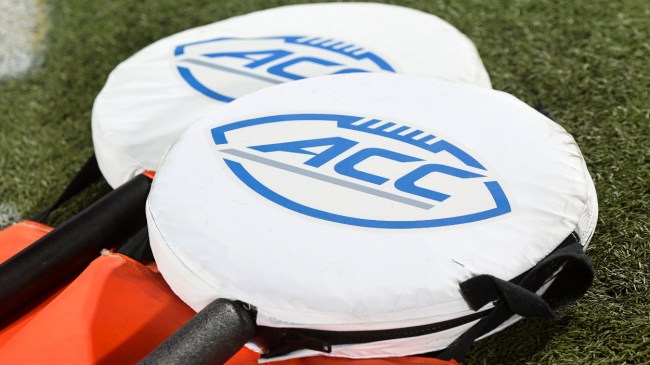
Getty Image
Clemson and FSU have reportedly suggested a change in how the ACC divvies up its end of year revenue. The two powerhouse football programs want a larger slice of the pie.
That unhappiness with their current allotment has many online reacting as they view it as a potential domino in an inevitable move out of the league.
It’s no news to anyone following college football over the last decade or more that these two schools carry the conference on the gridiron. Clemson has made the CFP six times in its nine-year existence, winning a pair of national titles in 2016 and 2018.
FSU is the only ACC member outside of Clemson to make the playoff field (2014).
That national prominence has stemmed from unprecedented league dominance as those two programs have won 11 of the last 12 conference championships while remaining ACC members continue to wade in mediocrity.
The Seminoles and Tigers have been able to keep the conference relevant on a national stage, and now, they want to be paid as such.
Athletic directors from both schools have offered a revenue sharing change that would reflect that.
Clemson AD Graham Neff wants a larger share of the pot. Here’s what he had to say on the issue at hand.
“In all candor, I put it as a need. We certainly recognize the investment that we’ve continued to make as an institution, in our community, in athletics, namely in football, which certainly drives a lot of value that is important from a television and revenue-generation standpoint. Is it time revenue distribution within conferences, or at least the ACC, is done differently? Yeah, I’ve been very active in those conversations within the league and continue to expect to take a leadership role in our desire for that to be a changed circumstance.”
Florida State’s Michael Alford echoed those sentiments.
“Something has to change moving forward.”
Those comments have many around the college football world reacting online.
One person said, “That’s probably the only way to keep from losing your top producers in any conference below the big two,” hinting that this could affect more than just the ACC.
Others disagree, with this fan writing, “The conferences that do unequal revenue share will likely have teams leave left and right.”
The problem for the ACC lies in its current TV agreement with ESPN, which doesn’t expire until 2036. The league watched others like the Big Ten and SEC sign lucrative media deals this offseason while the Atlantic Coast Conference remains stuck.
With the inability to increase yearly revenues until renegotiation, both Clemson and FSU believe they’re deserving of a larger chunk of the current media payout.
There’s a problem with that line of thinking, though.
While there’s no denying Clemson and FSU’s impact on the league, other ACC members aren’t going to willingly cede money to another conference member. They, too, have to focus on their bottom lines.
With that being said, an unhappiness with the current structure could ultimately lead to departures from the conference.
Unfortunately, any ACC member hoping to leave would have to pay an exit fee to get out of their contract (around $50 million). Complicating things even more is a Grant of Rights agreement that would cause the programs to lose out on even more money.
More from Rubbing the Rock on that GoR.
For those who are unfamiliar, a grant of rights agreement is when institutions agree to allow the conference have the rights to their media. The ACC agreed to a Grant of Rights deal that runs through 2036 and if a member were to leave before then, they’d have to pay the exit fee and then would forfeit the revenue gained through their media to the ACC. Over the course of 15 years, we could be talking about hundreds of millions of dollars.
Time will tell if that hefty ACC buyout is worth it for FSU and Clemson, but rest assured that other conferences would gladly take them given their national standing.
At the very least, it’s unsettling to see the league’s two most prominent football programs dissatisfied with the current arrangement.